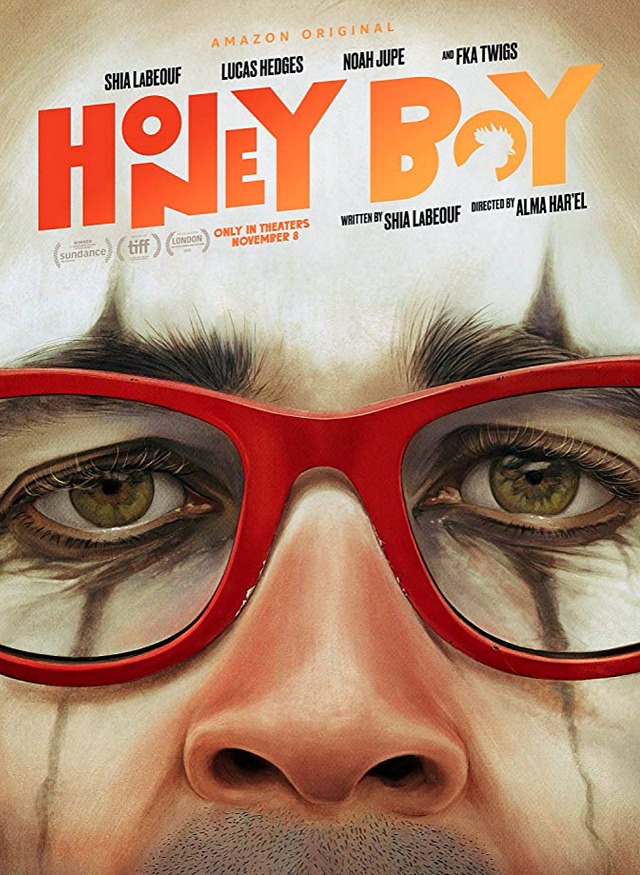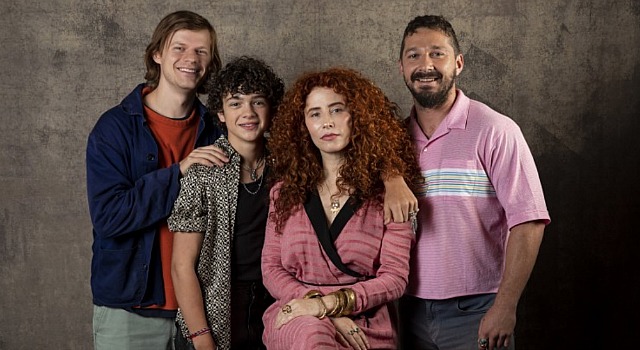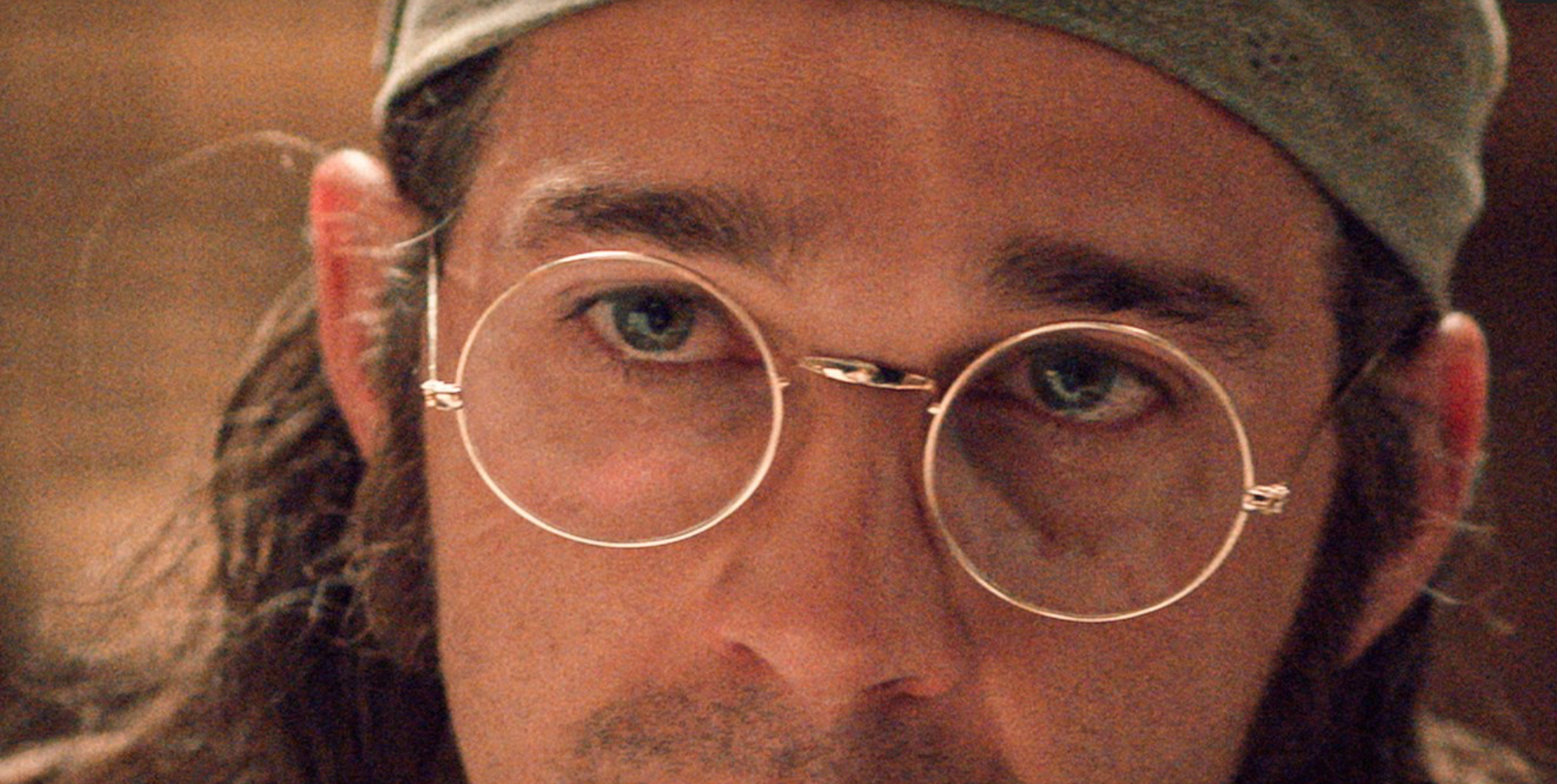Click here to jump past HE Sink-In
Give Shia LaBeouf‘s Honey Boy an A for honesty, and an extra A for soul-baring. It warrants respect and admiration — for LaBeouf’s screenplay and lead performance (playing his own abusive dad), for the performances of Noah Jupe and Lucas Hedges who play LeBeouf (called Otis Lort) at ages 12 and 22, respectively, and for the efforts of Israeli director Alma Har’el.
Since opening on 11.8, Honey Boy has been critically praised (Rotten Tomatoes 94%) and polled well with Joe and Jane Popcorn (91% on RT, an IMDB rating of 7.5.)
Honey Boy is a straight-up, take-it-or-leave-it thing — half cinematic therapy (LaBeouf wrote it in rehab) and half sordid family saga. It tells the truth about what Shia endured as a kid and what he’s grappling with now as a 33 year-old. And it’s no stroll in the park. But it doesn’t sidestep or shilly shally. It’s trustworthy.
SPECIAL HE ADVERTORIAL:

We’ve all come to know the LaBeouf saga over the last 13 or so years, and how reactive and turbulent and issue-laden it’s been all along. He became a successful child actor at age 9 or thereabouts (around ’95) and then a 21 year-old marquee name with his lead performance in Disturbia and then, starting in ’08 or thereabouts, an obviously troubled hotshot with standout performances in Wall Street: Money Never Sleeps (’10), Lawless and The Company You Keep (’12), Nymphomaniac (’13), Fury (’14), American Honey (’16), Borg vs McEnroe (’17) and The Peanut Butter Falcon (’19).
Not to mention the arrests, altercations, conflicts, provocations. Over the last decade LaBeouf has become far better known for his issues than his talent or achievements. By the term “issues” I’m alluding to what some have perceived as obnoxious, self-regarding behavior. But that’s a fair call, LaBeouf has said.
“I don’t think you were wrong for thinking I was a dick,” he told The Hollywood Reporter‘s Scott Feinberg a while back. Feinberg had confessed to feeling guilty for making dismissive assumptions about him in recent years as he repeatedly wound up in the headlines for all of the wrong reasons. “I think context is really important,” LaBeouf explained. “And I think what Honey Boy does is contextualize who I was publicly, and kind of plays on it. And I’m grateful it’s effective.”
Honey Boy tells us where all of this came from chapter-and-verse, and is explicit about the woundings that his belligerent boozer dad, Jeffrey Craig LaBeouf, laid on his son’s emotional doorstep.
Shia portrays Jeffrey as only he could. A onetime circus clown, LaBeouf Sr. is a tedious big-mouth and a yokel ayehole of classic proportions — an alcoholic pain-in-the-ass with a ponytail and all kinds of tucked-away Vietnam War trauma churning inside.
The film is basically about how Shia finally stood up and talked back and…well, began the process of self-examination and attempted self-healing that we all have to grapple with, especially those of us with parental abuse or alcohol or drug-related problems of our own.
Speaking as alcoholic who embraced sobriety a little less than eight years ago, and especially as the son of an alcoholic, Shia’s saga hit home for me.
All to say that LaBeouf, whatever the issue or emotional storm of the moment, has always been an open book. This is what makes him a fascinating X-factor talent. He never covers or obscures or rationalizes anything. He just puts it out there. Which is why Honey Boy matters. Because there’s no lying in any of it. No softening or sanding off the edges. One presumes LaBeouf has never even tried another way.


